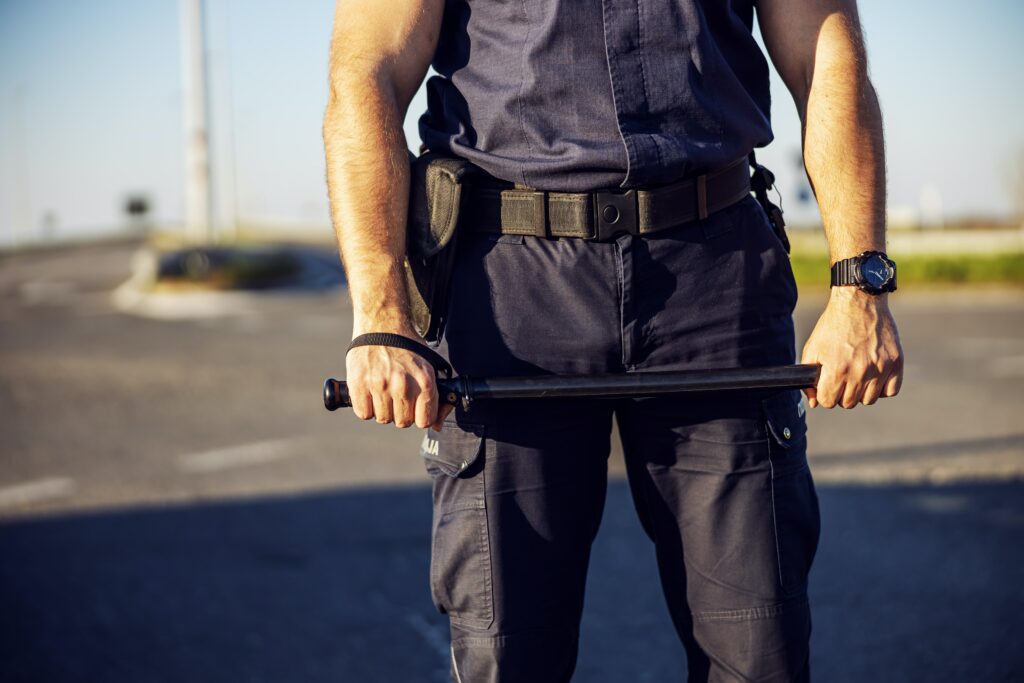A Civil Harassment Restraining Order (CHO) is a form of restraining order used in California. These orders can be obtained against someone who is not a close family member, spouse, or intimate partner.
A civil harassment restraining order can be sought against individuals who are not closely related or in an intimate relationship with the person seeking protection, such as a neighbor, landlord, or co-worker.
A Civil Harassment Restraining Order can require the person to stay away from you, your home, your workplace, and your children’s school. It can also prohibit the person from contacting you in any way, including phone calls, emails, and social media.

What Types of Behavior Does a Civil Harassment Restraining Order Stop?
A CHRO can be filed by any person who has been harassed, stalked, threatened, or abused by another person.
The law allows the court to issue a restraining order to anyone who has been “harassed.” The law defines harassment as follows:
Harassment
“Harassment” is unlawful violence, a “credible threat of violence,” or a knowing and willful “course of conduct” directed at a specific person that seriously alarms, annoys, or harasses the person and that serves no legitimate purpose.
The course of conduct must be that which would cause a reasonable person to suffer substantial emotional distress and must actually cause substantial emotional distress to the petitioner.
Credible Threat of Violence
“Credible threat of violence” is a knowing and willful statement or course of conduct that would place a reasonable person in fear for the person’s safety or the safety of the person’s immediate family and that serves no legitimate purpose.
Course of Conduct
“Course of conduct” is a pattern of conduct composed of a series of acts over a period of time, however short, evidencing a continuity of purpose, including following or stalking an individual, making harassing telephone calls to an individual, or sending harassing correspondence to an individual by any means, including, but not limited to, the use of public or private mails, interoffice mail, facsimile, or email. Constitutionally protected activity is not included within the meaning of “course of conduct.”

Can a Minor Obtain a Civil Harassment Restraining Order?
If you are under 18, you can go to your local court’s Self Help Center for help. For support and safety tips, chat at loveisrespect.org, text “LOVEIS” to 22522, or call 1-866-331-9474.
Minors 12 years or older can ask for a restraining order without parental permission. A minor below 12 years of age can appear in court without counsel but with a duly appointed and acting guardian ad litem.
How To Get a Civil Harassment Restraining Order
To file a CHRO, the Petitioner must reasonably fear harm or harassment from the Respondent.
If you have a reasonable fear of harassment, you must fill out several court forms requiring detailed information about the harassment, stalking, threats, or harm you have endured.
For a copy of the forms and assistance completing them, you can contact your nearby Self-Help Center. This will guide you through each step of requesting a restraining order.
How Long Does it Take to Get a Civil Harassment Restraining Order?
The length of the entire process varies from a few weeks to a few months, depending on the complexity of your case.

How Will a Civil Harassment Restraining Order Help?
A CHRO can protect the person seeking protection, their family members, and their pets. A judge can issue orders for no contact, staying away by a certain distance, and prohibiting ownership or possession of firearms or ammunition.
It can order the Respondent to stay a certain distance away from the Petitioner, cease all contact, or even move out of a shared home or workplace.
The CHRO can include the following types of orders:
- Not to harass, threaten, stalk, or harm people protected by the order.
- No contact.
- To stay a certain distance away.
- Cannot own firearms or ammunition.
Where to File a Civil Harassment Restraining Order?
CHROs are filed with the court in the county where the harassment occurred or where the Petitioner lives. The court will provide the necessary forms and instructions for filing.
Forms to Complete a Civil Harassment Restraining Order
The Petitioner will need to complete several forms to file for a CHRO. These forms include the Request for Civil Harassment Restraining Orders, a Declaration in Support of Request for Civil Harassment Restraining Orders, and a Temporary Restraining Order (TRO) form if immediate protection is needed.
All of these forms can be found online in California Courts Self-Help Guide.
Filing the Forms and Getting a Hearing
Once the forms are completed, they must be filed with the court. The court will then schedule a hearing to determine whether or not to grant the CHRO.
If immediate protection is needed, the Petitioner can request a temporary restraining order (TRO), which will be granted for a short period of time until the hearing can be held. Most TROs last for around 14 days.
Is There a Fee for Filing a Civil Harassment Restraining Order?
There is no filing fee for a petition that alleges that a person has inflicted or threatened violence against the petitioner, stalked the petitioner, or acted or spoken in any other manner that has placed the petitioner in reasonable fear of violence.
If you are not claiming any instances of violence, stalking, or threatening behavior, or if you did not request a fee waiver, you will be required to pay a fee of $435-$450 to the clerk at the time of filing your forms.
Serving the Respondent With a CHRO
The Respondent must be served with a copy of the CHRO and a notice of the upcoming hearing. A law enforcement officer or a professional process server can do this.
After the Hearing
If the CHRO is granted, it will be valid for up to five (5) years. The Respondent will be ordered to comply with the terms of the CHRO or face legal consequences. If the CHRO is denied, the Petitioner may appeal the decision.
Guns and Firearms Are Prohibited When There is a Civil Harassment Restraining Order.
If the Respondent is ordered to comply with a CHRO, they will be prohibited from owning or possessing firearms for the duration of the CHRO.
Additionally, if the Respondent already owns firearms, they must surrender them to law enforcement or sell them to a licensed dealer.

Penalty For Violating a California Civil Harassment Restraining Order
Violating a restraining or protective order under Penal Code (PC) 273.6 can result in penalties that vary depending on the circumstances and the defendant’s criminal history.
Generally, it is considered a misdemeanor offense, but it can be charged as a felony under certain circumstances.
If convicted of a misdemeanor violation, the offender may face up to one year in county jail, a mandatory 30-day jail sentence if the victim was injured, and a fine of up to $1,000.
Additionally, the offender will be required to attend counseling and domestic violence classes, pay the victim for restitution, and contribute to a battered women’s shelter.
A second violation within seven years, particularly if the most recent conviction involved violence or threats, may be charged as either a misdemeanor or a felony.
A PC 273.6 felony conviction carries a sentence of 16 months, 2 or 3 years in a California state prison, a fine of up to $10,000, and probation for up to one year.
If the offender has a prior conviction within one year and the victim suffers an injury, there is a minimum sentence of 30 days in jail.
Conclusion
If you are being harassed or threatened, a CHRO can help provide legal protection and peace of mind.

